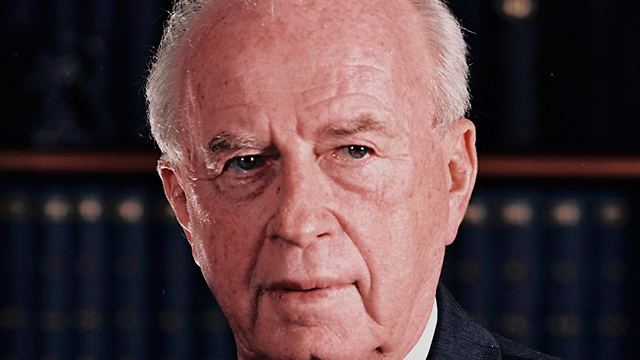IN THE MEDIA
The Israeli Consensus for Peace is Rabin’s Legacy
November 5, 2015 | Allon Lee

Allon Lee
It remains the most traumatic day in recent Israeli history.
Yitzhak Rabin, as Chief of Staff, had saved Israel at its darkest hour in 1967. He had served with distinction in the War of Independence and opened the road to besieged Jerusalem.
He was assassinated by an extremist who saw him not as a hero of the State of Israel but a traitor – because he dared to take risks for peace.
Time may heal all wounds but this rupture is one sore that will weep for many years to come.
Assessing Rabin’s legacy without the long shadow of his murder affecting our judgement is not easy.
Inevitably, as Israel is no closer to peace than it was 20 years ago, his legacy is burdened by a slew of ‘what ifs’.
There are some who argue that the chances for peace died with him. What would have happened had he lived is of course unknowable, but the record of his successors makes this claim doubtful.
Every single one of them sooner or later committed to a two-state resolution (something which Rabin never explicitly did) and in the cases of Ehud Barak and Ehud Olmert made substantive offers of a Palestinian state that tested the propositions that underpinned the Oslo Accords formula. Both made a number of concessions that Rabin had explicitly ruled out.
Is it really credible that Rabin would have offered more than Barak or Olmert, or somehow could have convinced the Palestinian leadership to accept when they clearly found it impossible to sign-up to?
So, how should we assess his legacy?
His legacy remains the same as when he died – a moral, courageous leader during wartime and one ready to take risks for peace when the opportunity presented. The Israeli consensus for a two-state peace – contingent only on the clear existence of a Palestinian partner willing and able to end the conflict in exchange – that has existed since his death is very much a testimony to the way he changed the Jewish State.
Few remember what Yasser Arafat said at the historic White House ceremony in 1993 where the Israeli-Palestinian Declaration of Principles was signed.
Yet the words of the tactiturn Rabin – not a man to succumb to sentiment or starry-eyed notions – still resonate two decades later:
We say to you today in a loud and a clear voice: Enough of blood and tears. Enough. We have no desire for revenge. We harbor no hatred towards you. We, like you, are people, people who want to build a home, to plant a tree, to love, to live side by side with you in dignity, in empathy, as human beings, as free men. We are today giving peace a chance, and saying again to you: Enough.
There is no better articulation of the meaning of the life of Yitzhak Rabin than that.
A version of this article appeared in the Australian Jewish News, 5 November 2015.
Tags: Israel





